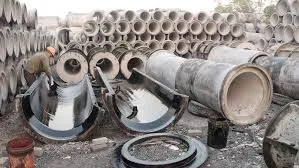- Afrikaans
- Albanian
- Amharic
- Arabic
- Armenian
- Azerbaijani
- Basque
- Belarusian
- Bengali
- Bosnian
- Bulgarian
- Catalan
- Cebuano
- China
- China (Taiwan)
- Corsican
- Croatian
- Czech
- Danish
- Dutch
- English
- Esperanto
- Estonian
- Finnish
- French
- Frisian
- Galician
- Georgian
- German
- Greek
- Gujarati
- Haitian Creole
- hausa
- hawaiian
- Hebrew
- Hindi
- Miao
- Hungarian
- Icelandic
- igbo
- Indonesian
- irish
- Italian
- Japanese
- Javanese
- Kannada
- kazakh
- Khmer
- Rwandese
- Korean
- Kurdish
- Kyrgyz
- Lao
- Latin
- Latvian
- Lithuanian
- Luxembourgish
- Macedonian
- Malgashi
- Malay
- Malayalam
- Maltese
- Maori
- Marathi
- Mongolian
- Myanmar
- Nepali
- Norwegian
- Norwegian
- Occitan
- Pashto
- Persian
- Polish
- Portuguese
- Punjabi
- Romanian
- Russian
- Samoan
- Scottish Gaelic
- Serbian
- Sesotho
- Shona
- Sindhi
- Sinhala
- Slovak
- Slovenian
- Somali
- Spanish
- Sundanese
- Swahili
- Swedish
- Tagalog
- Tajik
- Tamil
- Tatar
- Telugu
- Thai
- Turkish
- Turkmen
- Ukrainian
- Urdu
- Uighur
- Uzbek
- Vietnamese
- Welsh
- Bantu
- Yiddish
- Yoruba
- Zulu
Jul . 04, 2024 12:13 Back to list
What is Concrete Pipe Mold?
What is Concrete Pipe Mold?
Advantages of Concrete Pipe Mold
Disadvantages of Concrete Pipe Mold:
What Concrete Pipe Mold is Usually Used For?
Stormwater Drainage Systems
Concrete pipe molds are widely used for manufacturing precast concrete pipes for stormwater drainage systems. These pipes are designed to manage and convey stormwater runoff from urban areas, reducing the risk of flooding and erosion. Personally, I believe that the durability and strength of precast concrete pipes make them an ideal choice for stormwater drainage systems, a statement that could also apply to blocks produced by a solid block making machine in terms of durability and strength.
Sewage and Wastewater Systems
Another common use of concrete pipe molds is for producing pipes for sewage and wastewater systems. The molds create strong, leak-proof pipes that can withstand the corrosive nature of sewage and wastewater, ensuring the integrity of the system.
Irrigation Systems
Concrete pipe molds are also used for manufacturing pipes for irrigation systems, particularly in agricultural settings. Precast concrete pipes are ideal for this purpose, as they provide a durable and reliable means of water distribution. Their customizable sizes and shapes allow for efficient water delivery to various areas, optimizing the use of water resources in agricultural applications.
5 Considerations When Buying Concrete Pipe Mold
Dive Deeper Into Our Resources
-
8mm Thin-Walled Cast Steel Manhole Cover Pallet Bottom Ring | Durable
NewsAug.04,2025
-
Premium Cast Iron Water Main Pipe: Durable, Corrosion-Resistant
NewsAug.03,2025
-
Durable Cast Iron Water Mains | AI-Optimized Systems
NewsAug.02,2025
-
High-Efficiency Propane Boiler for Baseboard Heat | Save Energy
NewsAug.01,2025
-
Premium Source Suppliers for Various Gray Iron Castings
NewsJul.31,2025
-
Durable Cast Iron Water Main Pipes | Long-Lasting
NewsJul.31,2025



